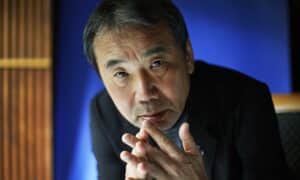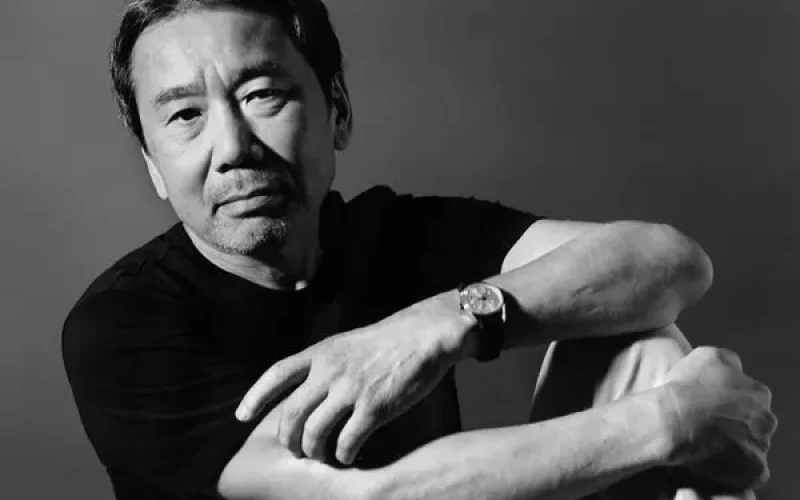“In my novels, walls are real walls. But of course, they are also metaphoric walls at the same time,” Haruki Murakami. Born under the shadow of the post-World War Two world, Haruki Murakami blends incredible realism, beauty, and rich metaphor into his novels. He is sometimes criticized as the “black sheep in the Japanese literary world” by the Japanese literary establishment, but his novels delve into human nature and defy national boundaries.
Haruki Murakami, as a person and as a writer, gives us many reasons to love his stories – let’s take a moment and analyze three reasons why we love him and why his novels matter.
Haruki Murakami: Elements of Life
Born at the beginning of 1949, Haruki Murakami entered a world still reeling from global conflict. His parents both taught Japanese literature, and Murakami’s father fought in the Second Sino-Japanese War (the historic Japanese term for WWII), leaving the young professor deeply traumatized. He witnessed his father’s sorrow and, in turn, the war impacted his future writing, set against the backdrop of universal suffering and the human condition.
As Haruki Murakami grew, he found himself drawn to books of all kinds. He spent a great deal of time reading European and American authors, i.e., Charles Dickens, Gustave Flaubert, Franz Kafka, and Fyodor Dostoevsky. According to biographical information, this Western influence has set Murakami apart from other Asian writers. Haruki Murakami found solace in books and sought to explore both new and traditional themes.
Haruki Murakami: Jazz Beat, New Beat

“For instance, there is fake news. I think it is right to challenge that with fiction. I think that would be the power of novels. Fake news has a slim chance of winning its fight against the truth. People who have acquired true stories can certainly see through lies,” Murakami explained in 2023. As his path unfolded, the young writer studied drama in Tokyo and then, before graduation, he opened a coffee house and jazz bar called “Peter Cat.” From 1974 to 1981, Haruki Murakami ran a small business, surrounded by music and the rhythms of daily life.
He didn’t write a word of fiction until he turned 29. “I didn’t write anything. I was just one of those ordinary people. I was running a jazz club, and I didn’t create anything at all,” Murakami said. With his wife Yoko Takahashi, Murakami lived a normal life. Yet, while watching a baseball game on television, Murakami felt the undeniable pull of inspiration.
With a glow in his heart, Murakami went home and began writing his first novel, Hear the Wind Sing, in 1979. Haruki Murakami submitted his manuscript to a literary contest, securing first place. Enboldened, he went on to write a sequel, Pinball, 1973. Since those early days, Haruki Murakami has never looked back – a new voice was given, liberated and alive, and reaching for the light.
Haruki Murakami: New Horizons, Beating Hearts
“I simply write the stories that I want to write, and in a style that suits me. When I write fiction, the story sort of moves on ahead naturally, like flowing water following the lay of the land. All I’m doing is putting this flow into words, as faithfully as I can,” Murakami said, explaining his work. In a highly visual world, i.e., Anime, Haruki Murakami compares the process of writing a novel to film-making. In a past interview, he said, “That is one of the joys of writing fiction—I’m making my own film made just for myself.
Haruki Murakami also believes in the power of education and holds several honorary degrees. He cares about people and their troubles from the Gaza Strip, Israel, and the recent war in Ukraine. In 2011, he told The New York Times Magazine, “I think of myself as a political person, but I don’t state my political messages to anybody.”
From powerful imagery, fantasy, and romance, Haruki Murakami draws upon all five senses, bridging between East and West and revealing what is true about us all.








